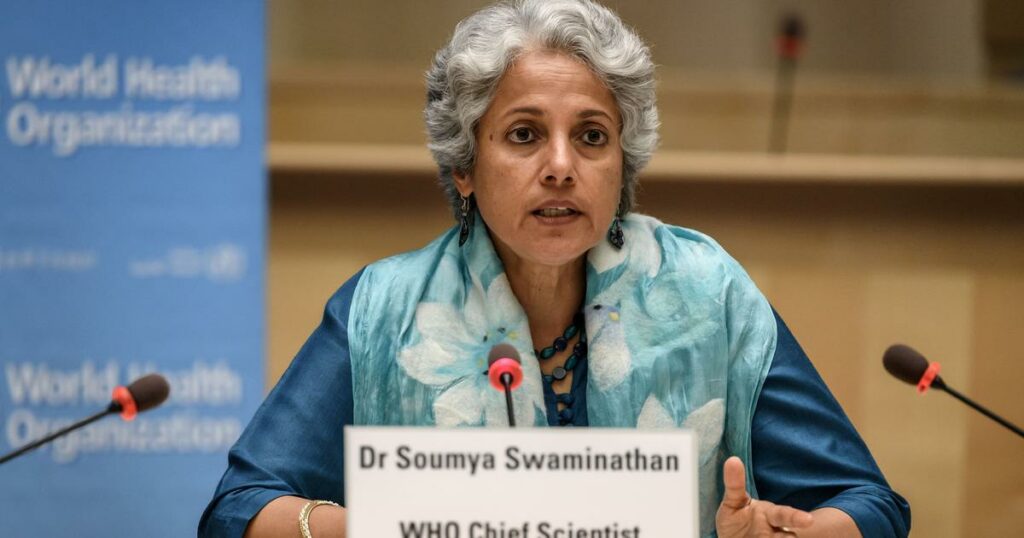Virendra Pandit
New Delhi: Amid reports of a resurgence of infections in some states and speculations about the third wave of Covid-19 might be hitting India in September-October, World Health Organization (WHO) Chief Scientist Dr. Soumya Vishwanathan has said the pandemic may turn into an endemic in the country.
India may be entering some kind of endemicity with a low or moderate level of transmission, she said, media reports said.
The endemic stage is when a population learns to live with a virus. It is very different from the epidemic stage when the virus overwhelms a population.
On the issue of indigenously-developed Indian vaccine Covaxin, Dr. Swaminathan said the WHO’s technical group, currently studying the matter, could grant clearance to it by mid-September as one of its authorized vaccines.
In view of the size of India and heterogeneity of population and immunity status in different parts of India, it is “very feasible” that the situation may continue like this with ups and downs in different areas, she said.
“We may be entering some kind of stage of endemicity where there is low-level transmission or moderate level transmission going on but we are not seeing the kinds of exponential growth and peaks that we saw a few months ago,” she said.
Dr. Swaminathan hoped that by the end of 2022 “we would be in that position that we have achieved vaccine coverage, say 70 percent, and then countries can get back to normal”.
On the prevalence of Covid-19 among children, she said parents need not panic. The serosurveys and experience from other countries show that while children could get infected and transmit, they had very mild illnesses most of the time. There is a small percentage that gets sick and gets inflammatory complications and few will die but much less than the adult population.
“But it is good to prepare… preparing hospitals for pediatric admissions, pediatric intensive care is going to serve our health system in many ways for other illnesses children have but we should not panic about thousands of children crowding into ICUs,” she said.
About the use of drugs like Remdesivir, Hydroxychloroquine (HCQ), or Ivermectin for treatment, she said, as of now, there is no evidence that HCQ or Ivermectin have any role to play in reducing mortality or morbidity in people infected with the virus or actually preventing people from getting an infection. So, therefore, there are no grounds on which recommendations can be made in the use of either of these drugs for treatment or prevention.
Solidarity trial showed Remdesivir does not reduce mortality. It may have a marginal benefit in subgroups of patients who need oxygen but not to be on ventilation. There may be a marginal benefit but Remdesivir does not do much in the stage of moderately or severely ill patients. It is also very expensive.
Drugs like Dexamethasone and oxygen are the two essential ones that save lives,” she added.
On the third wave, Dr. Swaminathan said no one has a “crystal ball” and it is impossible to predict the third wave.
On booster doses, she said there are both scientific and moral, and ethical reasons for not rushing into boosters. “It would also be in the self-interest of countries who have excess doses now to send those doses out through Covax to countries that desperately need them,” she added.

